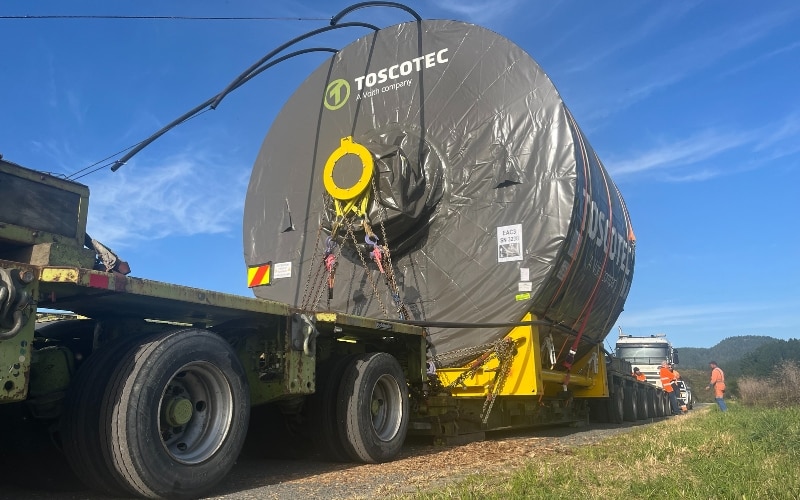
Essity invests $20 million to decarbonise its paper production at Kawerau
Essity has been on a program of continuous improvement at Kawerau to reduce its emissions for more than a decade. With this transition from natural gas to geothermal steam, the total carbon footprint for Essity’s Kawerau site will be about 66% lower in 2025 than it was in 2009.
The emissions reduction delivered by this shift to geothermal steam will be equivalent to removing over 2,200 cars from Kiwi roads.
Essity’s Kawerau plant is the only manufacturer of toilet tissue, paper towel, and kitchen towel in New Zealand. The site produces Tork paper products which are used in hospitals, schools, hotels, and workplaces throughout the region. Each year, around 55,000 tonnes of tissue and paper towel rolls out of the plant.
A paper machine that is wholly using geothermal steam for tissue drying is a world first in the paper manufacturing industry. Investing in renewable energy sources is an important part of Essity’s ongoing commitment to sustainability and 2030 science-based carbon reduction targets.
The rebuild at Kawerau by Essity will mean consumers will be able to access locally produced, sustainable and low-carbon tissue products.
The geothermal project at Kawerau will improve the paper machine efficiency, product range capability and, importantly, continue the journey of reducing carbon emissions from the plant.
Essity Australasia Senior Manager Sustainability, Jake Hatton says end customers are choosing sustainable brands such as Tork, as sustainability and product carbon footprint reporting are increasing in importance.
“Kawerau is a great place for paper making because of the unique access to geothermal steam, a renewable energy resource that is sustainably managed by our geothermal steam partner and supplier, Ngāti Tūwharetoa Geothermal,” he says.
The partnership with Ngāti Tūwharetoa is contributing to the socio-economic health of the local community and the supply contract helps fund local marae, housing and education. The significant steam supply contract is due to increase by approximately half when the rebuilt machine is commissioned later this year.
Around 80 contracting staff will be involved in the project as well as 25 Essity employees from engineering, operations, safety and management teams.
With a total investment of $20 million NZD, the Paper Machine Project is largely funded by Essity alongside industrial co-funding from EECA (Energy Efficiency and Conservation Authority).
EECA Group Manager, Delivery and Partnerships Richard Briggs says EECA has worked closely with Essity for several years, and it's wonderful to see the PM3 dryer hood project reach the installation stage.
“Geothermal steam is a great renewable fuel solution for the Kawerau site, and EECA is pleased to have supported Essity in the switch to clean and clever technology.”
EECA has also supported Essity to reduce energy costs and improve productivity.
